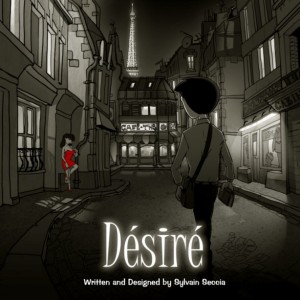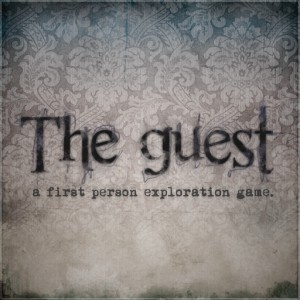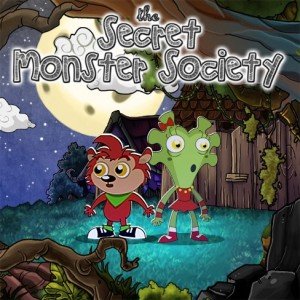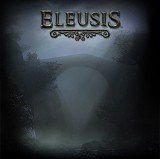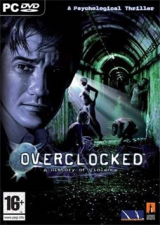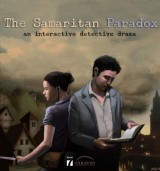Review for Event[0]
![Event[0] review](https://cdn.nivoli.com/adventuregamers/images/teasers/31590/e-fp1__big.jpg)
The trailer for Event[0] is a good one. It checks off all the boxes of creepy, heady science fiction: a lone astronaut stuck on a tragically-abandoned ship; an enigmatic, overly-friendly artificial intelligence; a vertigo-inducing EVA sequence; flickering lights; frantic breathing; and hints of a secret, homicidal agenda. But you know that sinking feeling you get when you realize halfway through a movie that all the best parts were in the trailer? I didn’t get that with Event[0], but only because it ended before I thought I had hit the halfway point. Don’t get me wrong – this is a not a bad game. In fact, it’s pretty good, but it ends quickly and without fulfilling the promises it hints at early on.
Let’s back up. Event[0] is a game by French studio Ocelot Society and grew out of an award-winning student project into a full commercial release. It is a first-person adventure game set in an alternate history where commercial space travel exploded in the 1980s. The intro sequence introduces the unnamed main character and allows players to select elements of their own backstory through multiple choice questions – elements that seem to have little or no impact on the way the story plays out. No matter the decisions you make (male or female, privileged or war orphan, etc.), you end up as one of the crew members of an expedition to Europa that goes wrong before the game even begins, leaving you the sole survivor aboard an escape pod that docks with yet another abandoned ship called the Nautilus.
Not long after arriving you are introduced to the ship’s onboard AI, Kaizen, who communicates solely through the command line interface of terminals scattered around the ship. He’s friendly and helpful, but assuming you’ve seen virtually any sci-fi movie before, you know not to take this amiability at face value. Soon enough, he has offered to help you get back to Earth… on certain conditions.
While the game is 3D, with free-roaming first-person movement through the ship, interaction is restricted to talking to Kaizen through the terminals. As you approach a terminal, you can simply type in your queries and commands. Need to open a door? OPEN DOOR D3, PLEASE. Wondering what happened to a specific character? WHERE IS ANELE? Want to have a conversation with Kaizen, as the trailer seems to imply? Well…
See, as in most parser-based games, it doesn’t take long to see behind the curtain, running into commands and questions that throw Kaizen for a loop. Try to engage in a conversation and you’ll occasionally get an endearing or creepy answer that seems lifelike. But more often than not he’ll respond with a confused, vague answer or a total non sequitur. Event[0] seems to want to pass this off as the quirks of an unstable AI, and sometimes that works, but more often the illusion is, if not broken, then at least dented.
Mostly, though, you’ll stick to asking Kaizen to open doors, turn lights on and off, and access old data logs – a disappointingly limited set of interactions, but functional enough – and the chunky typing sound effects and spot-on retro aesthetic of the terminals go a long way in making your conversations fun. These interactions make up a good chunk of the game; the rest is spent wandering the empty halls of the Nautilus, exploring rooms and looking for clues to access new areas.
Puzzles generally consist of finding a clue written down in the environment and then typing that into one of the terminals, whether entering the password to open a door or finding the correct memory address to pull up a retinal scan. Only a couple of puzzles break from this pattern of locked door – explore – find code – put code in terminal sequence. There’s nothing wrong with the puzzles such as they are, but for a game built around the player’s relationship with a complex AI character, it’s surprisingly rote. The rare moments when you do have to try to convince Kaizen to listen to you or obey your commands hint at a richer, more psychologically complex relationship that, unfortunately, never materializes.
The Nautilus looks and sounds great, thanks to impressive graphics and design that borrows heavily from sci-fi heavyweights like 2001, Moon, and Alien. The ship, built in Event[0]’s alternate 1980s, was intended as a luxury yacht and as such is full of convincingly retro-futuristic touches: brown and yellow wallpaper surrounding a bay window with an astounding view of Jupiter, early Apple-esque advertisements for the Nautilus program, stacks of vinyl records and film reels in the rec room. This is one of the better-looking Unity engine games I’ve seen, with sharp detail and atmospheric lighting. The sound, too, is excellent, constantly reminding you of your isolation, whether it’s the slow hiss of an airlock pressurizing or the raspy, desperate breath of your character inside their helmet. Kaizen’s distorted but cheerful voice lends character to what might otherwise be very dry chat exchanges. It’s a fascinating place to explore while it lasts.
But it doesn’t last long, taking anywhere from 1½ to 3 hours to complete, depending on your thoroughness in reading every log and exploring every nook and cranny. Now, there is nothing wrong with a short game as long as it gives players a full experience during that time, one that feels as if it should not have been a second longer. Event[0] doesn’t do that. I had just started to settle into the game and its world when I suddenly realized I was moments from the climax, and the conclusion, when it comes, is the ending to a much grander story than the one you’ve actually experienced.
The game relies on caring about the motivations of characters it has told you next to nothing about other than showing you the kinds of books they like on the shelves of their rooms. When presented with a climactic ethical choice, I had trouble with it, not because it was a difficult decision but because I knew so little about the stakes. When the credits rolled, I shrugged, feeling as if I had finished the equivalent of the first episode of a Telltale series before being fast-forwarded to the end of the final chapter. I went back and explored the other endings (there are three in all) but found they didn’t change my sense of dissatisfaction.
It’s a shame, because there’s a lot of very intriguing narrative setup going on: the alternate history, the mysterious disappearances of the Nautilus crew, the conflicting messages from Kaizen regarding his mission. I was ready to dive into all of these, but not as ready as the game was to get it all over with. Outside of the pacing problems, the writing is sharp, the environmental storytelling effective, the atmosphere creepy. But just when you expect the mystery to deepen and the puzzles to iterate on and evolve the skills you’ve learned, it’s over.
I liked my time with Event[0] well enough. It’s highly polished, great looking, has a killer concept and a creepy setting to explore. But it never comes close to reaching its potential – it wants to tell a great science fiction story but moves too quickly past the details that would make you care. It wants you to build a relationship with an AI that barely understands your input. The text parser mechanic has tons of promise but is underdeveloped. If Event[0] was the first episode of an ongoing series, I would be whole-heartedly recommending it as a thrilling setup full of potential, but as a standalone product, it is unfortunately undercooked.


![Event[0] Box Cover Event[0] Box Cover](https://cdn.nivoli.com/adventuregamers/images/screenshots/31241/image001__medium.jpg)
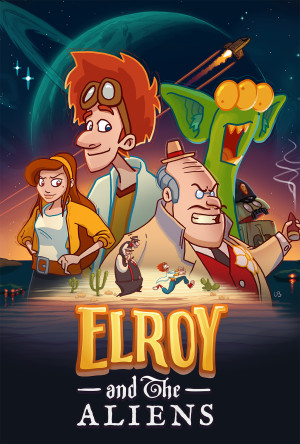
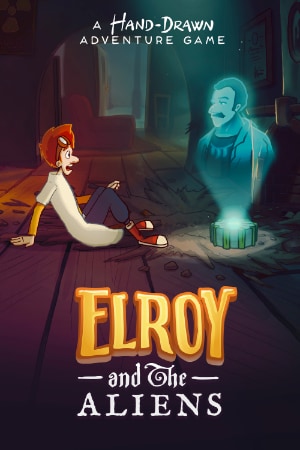
![Screenshot for Event[0] 1 Screenshot for Event[0] 1](https://cdn.nivoli.com/adventuregamers/images/screenshots/31241/e8__large.jpg)
![Screenshot for Event[0] 2 Screenshot for Event[0] 2](https://cdn.nivoli.com/adventuregamers/images/screenshots/31241/e7__large.jpg)
![Screenshot for Event[0] 3 Screenshot for Event[0] 3](https://cdn.nivoli.com/adventuregamers/images/screenshots/31241/e6__large.jpg)


